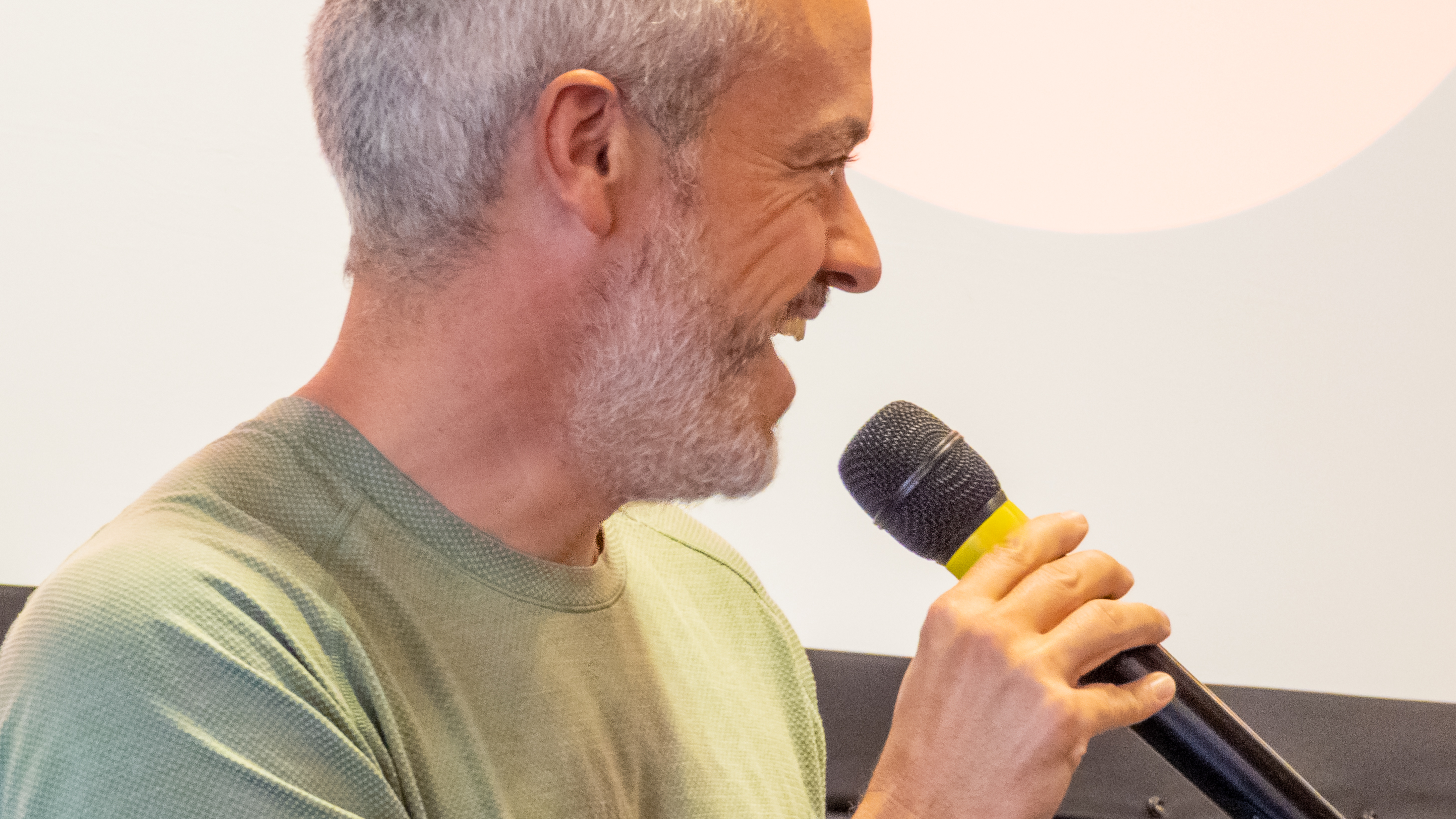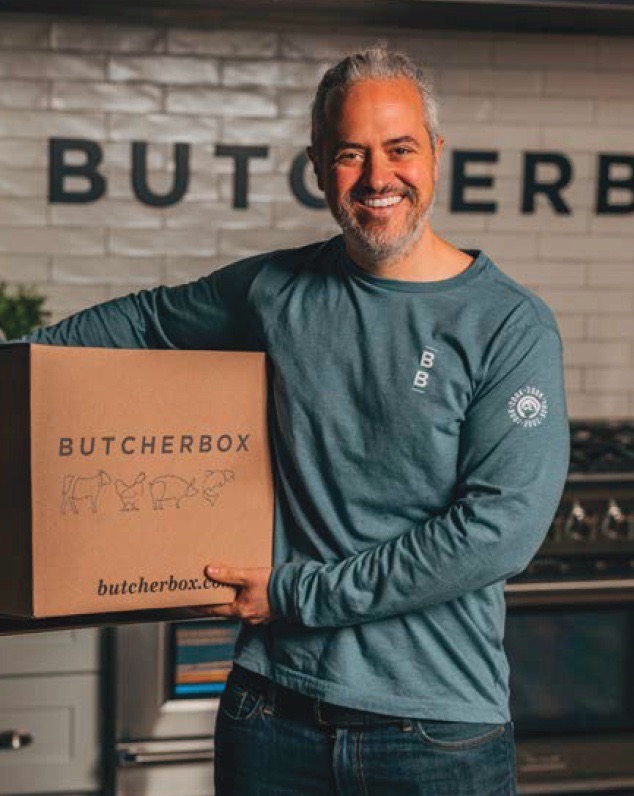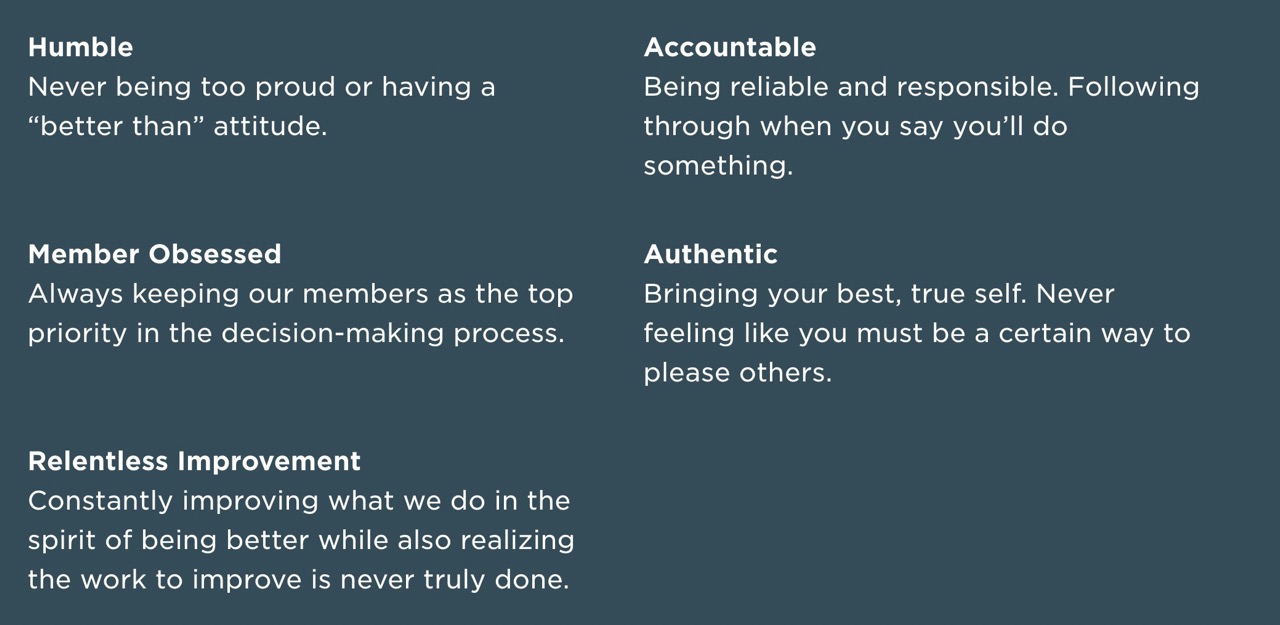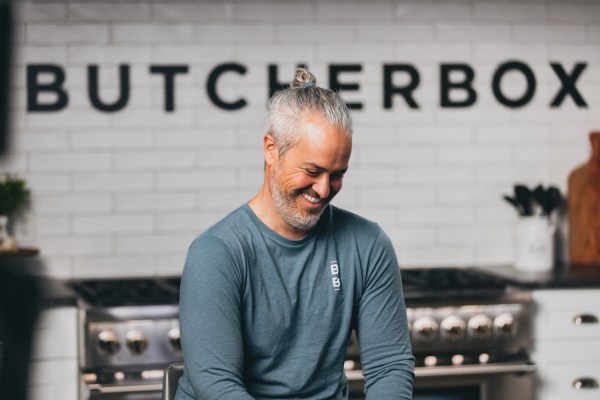Some of the best companies only come about because they found a problem worth solving.
For Mike Salguero, CEO and co-founder at ButcherBox, the problem and opportunity in the extraordinarily broken space of meat production and distribution simply could not be ignored. Armed with an idea for how to do things differently, the company ran a Kickstarter campaign back in 2015, which drew the attention of its first thousand customers. From there, the company has continued to grow.
At the recent Creative Technologist conference organized by venture capital fund Baukunst, Salguero shared that the company has seen $600 million worth of revenue without taking a penny of external investment and talked about some of the lessons he learned along the way.
A rocky start
ButcherBox isn’t Salguero’s first rodeo. His first company was CustomMade.com, which raised $30 million in venture capital from First Round Capital, Google and Atlas Ventures in a series of funding rounds.
But in spite of all the money it raised, the company wasn’t successful. “My experience was really bad. We lost everyone’s money, which I felt a lot of shame about,” Salguero recalls. “At the very end, I had diluted myself so much, I owned just 5.5% of the company. The business failed, and we ended up going bankrupt, losing everyone’s money.”
After that, Salguero decided to walk a very different path with his next company, which he started after being confronted with a very personal problem. His wife has a thyroid condition, and in the process of doing an elimination diet to figure out what foods she might be intolerant to, they learned about grass-fed beef. However, this kind of meat was hard to find in the supermarkets in Boston.
“While CustomMade was falling apart, I started calling farmers and asking them if I could buy a half-share of meat,” Salguero laughs. That’s a lot of meat, and he describes it as “basically two trash bags full of beef.”
“I was meeting meat farmers in parking lots, buying a couple of trash bags full of meat — I’m sure that didn’t seem sketchy at all,” he said. “But it was too much meat for my freezer, so I ended up selling the excess meat to friends or people I was working for.”
Some of his buyers repeatedly told him that it would be much better if the meat was delivered to their houses, and thus, the basic idea for ButcherBox was born.
Meat in the mail
“I got obsessed with the idea and started researching how you ship meat in the mail. I had no idea how to do it. But I’m a big believer in finding people who have done something before and then asking them for help. It skips a lot of the hard work,” Salguero explains. “I found the former head of operations of Omaha Steaks, which at the time was the big behemoth of meat in the mail. And he just said ‘Oh, yeah, my non-compete just ended. I’ll be glad to help you.’ He put all the pieces together at the beginning.”
Then everything started happening all at once. Salguero was fired from CustomMade and even though he had aspirations of taking 100 days off, going on a silent meditation retreat and recharging, he threw himself into building ButcherBox less than a week later.
He hired an intern and launched a Kickstarter campaign in September of 2015, a decision made out of a desperation to never raise money again. Fundraising wouldn’t be necessary, he thought, as he wanted to do this as a hobby rather than as a big business.
“I’m only going to put in $10,000 into this thing,” Salguero recalls deciding, adding that he vowed to keep things light and easy. “I gave equity to the Omaha Steaks guy, and I gave equity to the branding studio, which in retrospect was a mistake, because I had way too low of a valuation.”

Mike Salguero, CEO at ButcherBox speaks at the Baukunst Creative Technologists conference. Image Credits: Haje Kamps / TechCrunch
All aboard the rocket ship
“We agree with vegetarians.” Mike Salguero, CEO, ButcherBox
The company had a goal of $25,000 for the crowdfunding campaign, but it ended up raising eight times that amount in preorders. It soon converted a lot of the preorder customers into subscribers, and the rest is history. The company went from revenue of $275,000 in 2015 to $5 million in 2016, then $31 million in 2017 and kept growing.
When COVID-19 hit, the meat-packing industry didn’t fare well, but ButcherBox’s revenue just kept growing as people started subscribing to home delivery services like there was no tomorrow. In 2019, the company had revenues of $225 million, but the pandemic tailwinds nearly doubled its top line to $440 million. In 2021, the company recorded $550 million, and this year, Salguero is optimistic his company will go past the $600 million mark.
“This whole time, I’ve just been on a rocket ship,” Salguero says.
Beyond the numbers, the company has continued to stay true to its original mission of trying to make a difference.
ButcherBox became a certified B corp in January 2021, joining the ranks of other heart-forward companies such as Allbirds, Ben & Jerry’s, King Arthur Flour and Patagonia, and further fortifying its aspirations as a company that takes a stand.
Growing without external investment
Figuring out how you build and grow a company without external investment is an exercise in scrappiness, but Salguero’s team had a few tricks up its sleeve, starting with the Kickstarter campaign and a number of communities who cared deeply about how and what they eat.
The company figured out how to growth-hack its way to success by tapping bloggers and nutritionists. “You said eat grass-fed beef,” the company would tell them and created an affiliate model to help incentivize them to promote its products. “We don’t have any money, so we can’t pay you up front, but we will pay you for every box that person gets, and we will make sure that you get like $10 or $15,” went their communications, Salguero said.
A lot has changed since the early days. Today, the company is paying a lot more up front to get access to customers.
“The decision to not raise money forced us to make those kinds of moves. We created a moat around the entire paleo/keto/CrossFit world with all the influencers,” Salguero recalls. “All of those influencers are all still getting checks from us, and some of those checks are $5,000 to $10,000 a month. They’re not going to rep someone else’s stuff, because they don’t want to stop that income stream.”
The company essentially stumbled into influencer and affiliate marketing, staying lean in the process.
“Meanwhile, 2015 is when Blue Apron was crushing it,” Salguero recalls. “They had raised their last institutional round; their last private round was at a $2 billion valuation. And then they went public, and they went from a $2 billion valuation to I think they’re trading at around $100 million right now,” he says with a grimace.
He’s right; as we are publishing this, Blue Apron’s market cap is at around $75 million.
“They went hard, and they crashed hard and fast before any of the employees could get out,” Salguero says with a shrug, making his point that ButcherBox’ independence turned out to be a powerful tool for sustainability.
“VCs are pattern matchers. Six weeks before it crashed, they would have been like, ‘Blue Apron is amazing!’, and now they won’t even take a meeting. At the height of Blue Apron, there were 150 Blue Apron look-alikes. And now there are not that many left; they all sold or went under because Blue Apron died in the stock market. So, you know, I look back at the decision not to raise money, and I’m so glad. If we had, we wouldn’t have a company right now.”
Driven by values and focused on culture
“We like to say that we agree with vegetarians,” says Salguero, outlining his company’s mission and his eagerness to pick a fight with the entire meat industry. “The majority of animals are not treated well. And it’s even worse than that, because when you actually look at it, the farmers aren’t treated well, the environment, the workers in the slaughterhouse … Nobody is treated well, and the entire system is broken. We believe that we can do better. I feel like we’ve been put here to make a dent in this industry.”
As you might expect, it hasn’t been the smoothest of rides, but Salguero speaks with reverence and care when it comes to “doing the work” and ensuring that a work-life balance remains possible.
“I think everyone carries their shadows. The hard times shape us as well as the good times,” he says. “I’m generally most interested in shadows from childhood and how those show up at work. I think one of the coolest things about being a founder is you get to play with how you operate as a human being. I’m very into the Enneagram, conscious leadership and understanding the ‘snake’ in your head and how it shows up.”
Salguero sounds particularly excited about staying connected with his journey as a startup founder and believes that shows up powerfully in the company’s culture.

Mike Salguero, CEO at ButcherBox with one of his boxes ready to ship. Image Credits: ButcherBox
“We hired all these like savages who came in and just destroyed the place.” Mike Salguero
“One of the things that I wanted to react to on the culture side is that I lost the culture in my first company. We hired all these savages who came in and just destroyed the place. And that’s my fault. I want to take full blame for that. Why is it my fault? Because I never wrote down the culture,” Salguero reflects.
He decided to take a different approach at ButcherBox. Within the first year, he realized that the company was now at a point where it was going to start hiring people more aggressively, and that posed a challenge.
“It’s possible that I’m on vacation and that I might not even interview this person before they join the team. So we decided to write down our core values. We pulled the top people who we like, the people we thought exhibited the core values of the company, and we brought them into a room and asked them, ‘What makes you special?’ We did a brainstorming exercise and came up with five core values. We hammer these home; they’re everywhere in our office.”
Whenever the company hires, it screens for each of its core values: Humility, accountability, authenticity, relentless improvement and being member obsessed. The company lists ’em front and center whenever it’s recruiting.

ButcherBox’s values are everywhere in its office. Image Credits: Screenshot from the ButcherBox site.
“Humility is a big one for us. If you come in and it’s all about how you built this, how amazing you are and all the accomplishments you did — that’s a big red flag. If you come in and you have a coffee cup and you leave it on the desk, expecting someone else to take care of it for you, that’s a big red flag,” Salguero said.
Financial leverage and capital efficiency
While it hasn’t raised outside capital, ButcherBox does have a number of lines of credit that help it grow.
“Our inventory is financed by our distribution center, and we have inventory worth tens of millions of dollars. We have a credit line with Bank of America that we haven’t used, but we have an equipment credit line. Using debt, especially when you’re profitable, is a good move, because you get to depreciate the assets and you get to deduct the interest,” Salguero says. “When a company first starts out, I believe the most important thing is capital efficiency.”
As a company, ButcherBox is obsessed with being efficient with its money. The only thing that matters, the company says, is dollars per box. In other words, the margin it makes on every box that leaves the distribution center after accounting for credit card fees, shipping costs, packaging and cost of goods sold.
“You need to be maniacal about getting the dollars per box as high as humanly possible. We negotiate everything. It turns out that when you’re sending hundreds of thousands of boxes a month, everything matters. We have about 7 million linear feet of tape, so if you can shave 0.001 cents off per foot, that is a huge number,” Salguero explains. “We’ll negotiate everything.”
Building the Patagonia of meat
It turns out there aren’t a lot of well-known brands in the meat industry. Spam, Butterball, Oscar Mayer and maybe a handful of others are popular enough, but there are few truly iconic brands. That’s the next horizon ButcherBox is aiming for while working to improve the industry it operates in. The company uses Patagonia as an example.
“When you buy a Patagonia jacket, you know they’ve thought about the thread; they thought about everything. That’s what we’re doing to meat, and I think it’s a huge opportunity. It may take the rest of my life, but if I don’t raise money and if I don’t go public, we can take as much time as we want,” Salguero says.
He talks about the lengths he is willing to go to ensure he sticks to that goal: “I was in a meeting where we decided we wanted to make sure that the workers in the processing facilities are protected. We tried to find an auditing firm. It’s easy to find someone to make sure that workers in Bangladesh who are sewing T-shirts are treated really well. You can ensure that the animals are treated well. But in this country, if you want to ensure workers in a meat plant are treated well, that doesn’t exist.
So we want to start doing that. It’s not going to happen this year. It might not happen next year, but on a long-term horizon, we can do it. And if we don’t have to pump the numbers every 18 months so we can raise money again, you have a totally different perspective.”
